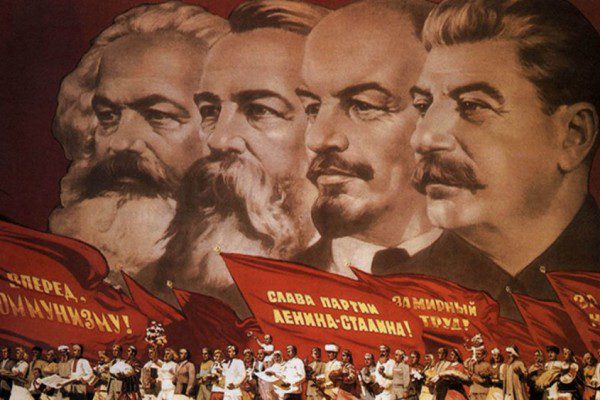The political system consists of several kinds, one of which is the totalitarian political system. Over the years, many countries have experienced transitions in political systems. Initially using a totalitarian political system then changed to a democratic political system.
So what exactly is the meaning of this totalitarian political system, what are the types and characteristics and which countries use the system. Let’s take a look at the following review of sinaumedia.com .
Understanding Totalitarian Political System
As a totalitarian term, it was first coined by an Italian dictator named Benito Mussolini. Then along with the development of the times, political scientists used this term to describe the phenomenon of the Soviet Union and the Adolf Hitler Regime, the Nazis in Germany.
The totalitarian political system is a system of governance that controls society as a whole both at the social, cultural, economic and political levels. In this system the state is not present as a referee but the state is present as the main player.
That is, there is no clear boundary between the state and citizens. In other words, the state is served by citizens, not the other way around, citizens are served by the state.
By adopting this system, a country will impose consensus on the community even in situations of internal and external conflict. In addition, the totalitarian system uses state ideology as a way of life in the social order.
Furthermore, totalitarianism views that individual human existence is not important because for this system a human being is only limited to carrying out his role as a supporter of the ideals of the state.
There is no freedom of citizens, the government will blatantly eliminate an individual or group of different opinions.
Sadly, this system will also regulate all aspects of life, from the dress code to the hair style of the citizens of the country. On the other hand, the assessment of good and bad behavior of citizens is also determined by the taste of the state.
The military, police, communication tools to the media are all under the control of the government. This means that a citizen cannot contribute criticism and suggestions to the government.
This non-democratic form of government prioritizes ideological indoctrination and the implementation of a government that tends to impose its will.
Types of Totalitarian Political Systems
Based on the background of its nature, this system is divided into two as follows:
1.Communism
Communism is an idea pioneered by German philosophers, namely Karl Marx and Friedrich Engels . These two philosophers made a phenomenal work entitled The Manifesto of the Communist Party in 1848.
Communism itself is a political ideology which believes that society can gain prosperity by eliminating private property. Private ownership in question is ownership of the means of production.
Thus the means of production are controlled by the state but the state is obliged to ensure the welfare of its citizens by meeting the needs of each of its citizens.
Based on history, communism is actually a criticism of the capitalist and liberal economic system, which according to him is very exploitative. Despite the fact that communism is trapped in a dictatorial and authoritarian monopoly of power over what they call the proletariat.
Countries that still adopt this system are China, North Korea, Cuba, Albania, and Vietnam.
2. Fascism
Fascism is more or less the same as communism, but fascism does not only see the problem of class struggle. They assume that society has experienced chaos and moral decay so that it needs improvement.
As a system, fascism is an ideology that rejects the narratives of capitalism, liberalism, communism and conservativeism. Fascism is based more on an authoritarian nationalist system of government.
Countries that adopt a fascist ideological system tend to sacrifice aspects of social life for the sake of the state. Fascism will put the interests of a single party above the interests of the people in the name of the interests of the state.
However, in practice, Benito Mussolini, the originator of the term totalitarianism, vehemently denied that the fascism that Adolf Hitler practiced was the same as what he did in Italy. For Mussolini Hitler’s racism was not part of the narrative of fascism in Italy because humans were not testing instruments for the benefit of a handful of other humans.
Fascism is an idea that binds many people with a spirit of nationalism accompanied by pressure and threats. Countries that embraced fascism were the countries of Eastern Europe, West Germany, and the Soviet Union before it collapsed. Fascism clearly rejects parliamentary and democratic methods because these methods will open up space for public participation.
Characteristics of Totalitarian Political Systems
1. The existence of political repression, namely the state has a more role in regulating and limiting its citizens from participating in the political world.
2. Aspects of individual and community life become a political concern.
3. There is only one ruling party. This political party has strong legal force and can control politics as a whole so that competition, recruitment and opposition can be regulated in such a way.
4. Ideological indoctrination of the people in order to regulate the views of the nation and state and how their political activities are carried out. Indoctrination usually covers all aspects of people’s lives.
5. There is control over the people’s economy because there is no private ownership and the means of production are wholly state-owned.
6. There is a limit to express voice. No people can protest or criticize the government.
7. The existence of control over the mass media so that there is a lack of transparency, the cult of a leader to the arbitrariness of the state against its people.
8. There is mobilization of the people to get mass support. Usually this mobilization is in the name of democracy so that it seems as if the ruling regime has the legitimacy of the people.

